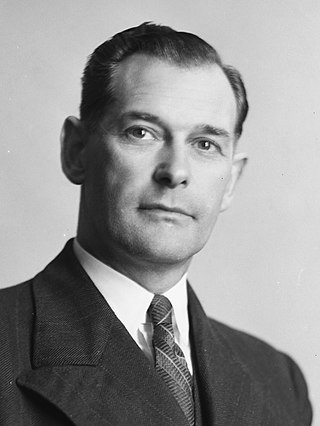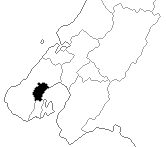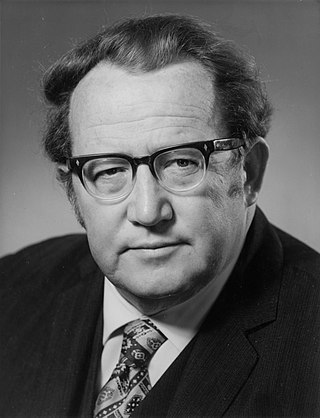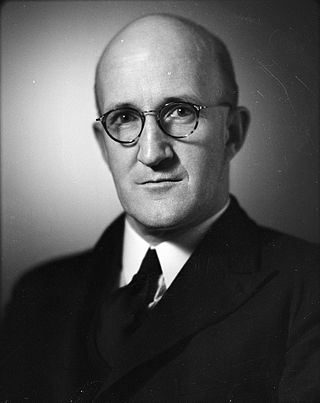Related Research Articles

The New Zealand Social Credit Party was a political party that was New Zealand's third party from the 1950s to the 1980s. It won representation in the New Zealand House of Representatives, holding one seat at times between 1966 and 1981, and two seats from 1981 to 1987. While Social Credit once had significant support, particularly as a protest vote, it was disadvantaged by first-past-the-post voting as it had no geographically concentrated vote. Its most identifiable leaders were Vernon Cracknell (1963-70), who served just one term in parliament, and the household name Bruce Beetham, who rebuilt the party into a significant political force. At its zenith under Beetham in 1981, Social Credit achieved an unprecedented 20.7% of the vote.

The 1984 New Zealand general election was a nationwide vote to determine the composition of the 41st New Zealand Parliament. It marked the beginning of the Fourth Labour Government, with David Lange's Labour Party defeating the long-serving Prime Minister, Robert Muldoon, of the National Party. It was also the last election in which the Social Credit Party won seats as an independent entity. The election was also the only one in which the New Zealand Party, a protest party, played any substantial role.

The 1972 New Zealand general election was held on 25 November to elect MPs to the 37th session of the New Zealand Parliament. The Labour Party, led by Norman Kirk, defeated the governing National Party.

The 1946 New Zealand general election was a nationwide vote to determine the shape of the New Zealand Parliament's 28th term. It saw the governing Labour Party re-elected, but by a substantially narrower margin than in the three previous elections. The National Party continued its gradual rise.

The 1949 New Zealand general election was a nationwide vote to determine the shape of the New Zealand Parliament's 29th term. It saw the governing Labour Party defeated by the opposition National Party. This marked the end of the 14-year First Labour government and the beginning of the First National government.

The 1954 New Zealand general election was a nationwide vote to determine the shape of the New Zealand Parliament's 31st term. It saw the governing National Party remain in office, but with a slightly reduced majority. It also saw the debut of the new Social Credit Party, which won more than eleven percent of the vote but failed to win a seat.

The 1957 New Zealand general election was a nationwide vote to determine the shape of the New Zealand Parliament's 32nd term. It saw the governing National Party narrowly defeated by the Labour Party. The 1957 elections marked the beginning of the second Labour government, although this administration was to last only a single term.

The 1960 New Zealand general election was a nationwide vote to determine the shape of the New Zealand Parliament's 33rd term. It saw the governing Labour Party defeated by the National Party, putting an end to the short second Labour government.

The 1966 New Zealand general election was a nationwide vote to determine the shape of the New Zealand Parliament's 35th term. It saw the governing National Party win a third consecutive term in office. It was also the first time since the 1943 election that a minor party won a seat in Parliament.

The Rangitikei by-election of 1978 was a by-election in the New Zealand electorate of Rangitikei, a predominantly rural district in the middle of New Zealand's North Island. The by-election occurred on 18 February 1978, and was precipitated by the death of sitting National Party member of parliament Sir Roy Jack in December 1977.

Henry Leonard James May was a New Zealand politician of the Labour Party. He was a cabinet minister from 1972 to 1975.
The New Zealand Liberal Party was a classical-liberal party that was formed to stand candidates in the 1963 general election. It was defunct after the 1966 general election, which it did not stand candidates for.

The 1992 Wellington Central by-election was a by-election held in the Wellington Central electorate during the 43rd New Zealand Parliament, on 12 December 1992. It was caused by the resignation of incumbent MP Fran Wilde after her election as mayor of Wellington and was won by Chris Laidlaw with a majority of 855.
The Marlborough by-election of 1970 was a by-election for the electorate of Marlborough, held on 21 February 1970 during the 30th New Zealand Parliament.
The Southern Māori by-election of 1967 was a by-election for the electorate of Southern Maori on 11 March 1967 during the 35th New Zealand Parliament. The by-election resulted from the death of the previous member Sir Eruera Tirikatene on 11 January 1967.
The 1967 Petone by-election was a by-election for the electorate of Petone on 15 April 1967 during the 35th New Zealand Parliament. The by-election resulted from the death of the previous member the Hon Mick Moohan on 7 February 1967. The by-election was won by Fraser Colman, also of the Labour Party.

The Fendalton by-election of 1967 was a by-election for the electorate of Fendalton on 15 April 1967 during the 35th New Zealand Parliament.

The Palmerston North by-election of 1967 was a by-election for the electorate of Palmerston North on 2 December 1967 during the 35th New Zealand Parliament.

The Brooklyn by-election 1951 was a by-election held in the Brooklyn electorate in Wellington during the 29th New Zealand Parliament, on 17 February 1951.
The New Zealand Liberal Federation was a laissez-faire Liberal Party that was formed to stand electoral candidates in the mid-1950s.
References
- Norton, Clifford (1988). New Zealand parliamentary election results, 1946–1987. Wellington: Victoria University of Wellington Department of Political Science. ISBN 0-475-11200-8.